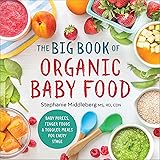The video above highlights the significant environmental benefits of veganism. Christian Hextrum’s TEDx talk reveals how our food choices deeply impact the planet. Specifically, animal agriculture has a profound effect. Understanding these impacts helps us make more sustainable decisions.
Many people associate veganism with strict diets or specific lifestyles. However, focusing on the environmental impact reveals a powerful truth. Choosing plant-based options can create a healthier world. This shift can bring positive changes much faster than expected.
Understanding Animal Agriculture’s Impact on Our Climate
Animal agriculture significantly contributes to climate change. It is a leading cause of greenhouse gas emissions. The video mentions that it accounts for 51% of all greenhouse gas emissions. This figure is substantial.
Carbon dioxide is a well-known greenhouse gas. However, animal agriculture also produces other potent gases. Nitrous oxide is one such gas. It traps heat far more effectively than carbon dioxide. The video states nitrous oxide is 296 times more destructive than CO2. This impact is disproportionately high, even at lower volumes.
Billions of animals in the industry produce enormous amounts of waste. This waste releases harmful gases. For instance, the United States alone sees seven million pounds of animal waste produced every minute. This massive output adds constantly to atmospheric pollution. Reducing demand for animal products lessens this burden.
The Surprising Speed of Change
Consider the speed at which changes could occur. Environmental professor Kirk R. Smith points out a crucial difference. Eliminating oil and gas would show effects in about a century. In contrast, a global shift to veganism could show effects within decades. This contrast highlights the immediate potential of dietary changes. Our daily food choices truly matter.
Water Use: A Hidden Cost of Animal Agriculture
Water is a precious resource. Animal agriculture demands an astonishing amount of it. The video cites John Robbins, author of *Diet for a New America*. He states 5% of US water use is domestic. This includes showering and laundry. However, a massive 55% of US water goes to animal agriculture. This difference is striking.
Animals drink a lot of water. But their feed crops also require extensive irrigation. This double demand strains freshwater supplies. Globally, one-third of Earth’s entire freshwater supports animal agriculture. This immense usage contributes to water scarcity in many regions. Choosing plant-based foods helps conserve this vital resource.
Land Use, Deforestation, and Biodiversity
Our planet’s forests are critical for air quality. Rainforests act as the “Earth’s lungs.” They absorb carbon dioxide and release oxygen. Alarmingly, an acre of rainforest is destroyed every second. Animal agriculture is the primary cause of this destruction. It fuels deforestation on a massive scale.
The Amazon rainforest, for example, faces immense pressure. Animal agriculture is responsible for 91% of its destruction. This happens to create land for grazing and growing feed crops. This massive land conversion leads to habitat loss. It also reduces biodiversity. Many species lose their homes.
Efficiency of Land Use
Plant-based diets are far more land-efficient. Consider an area of one and a half acres. This land can yield 37,000 pounds of plant-based food. However, it only produces 375 pounds of meat. This comparison shows a stark difference in productivity. A vegan needs only one-sixth of an acre for a year’s food. A meat-eater needs 18 times more land for the same period. Shifting to plant-based diets frees up vast tracts of land. This land could then be reforested or used for other sustainable purposes.
Global Food Security and Resource Allocation
The world currently produces enough food. In fact, there is enough to feed 10 billion people. This is more than our current global population of seven billion. Yet, hunger remains a widespread problem. The video reveals a key reason. A significant portion of global grain production feeds livestock, not humans.
Around 50% of all grains worldwide go to animals in the industry. These grains could feed millions of people. It is a critical misallocation of resources. The situation becomes even more tragic when considering local communities. The video highlights that 82% of starving children live near these livestock operations. Despite their proximity to food production, the crops are shipped elsewhere. They go to more affluent regions like the US, UK, and Europe. This practice fuels an inequitable food system.
The sheer volume of feed consumed by animals is astounding. Humans collectively eat 21 billion pounds of food annually. In contrast, the world’s 1.5 billion cows alone consume 135 billion pounds of food each year. This enormous disparity underscores the inefficiency. It also shows the unsustainability of current animal agriculture practices. Rethinking our food system is essential for global food security.
Taking Action for a Healthier Planet
The environmental benefits of veganism are clear. Shifting completely might feel daunting for some. However, every small step makes a difference. Consider reducing your consumption of meat and animal products. Try plant-based alternatives more often. Options like Beyond Meat and Impossible Foods are widely available. These choices significantly lessen your environmental footprint. Making conscious dietary decisions supports a healthier future for all.











